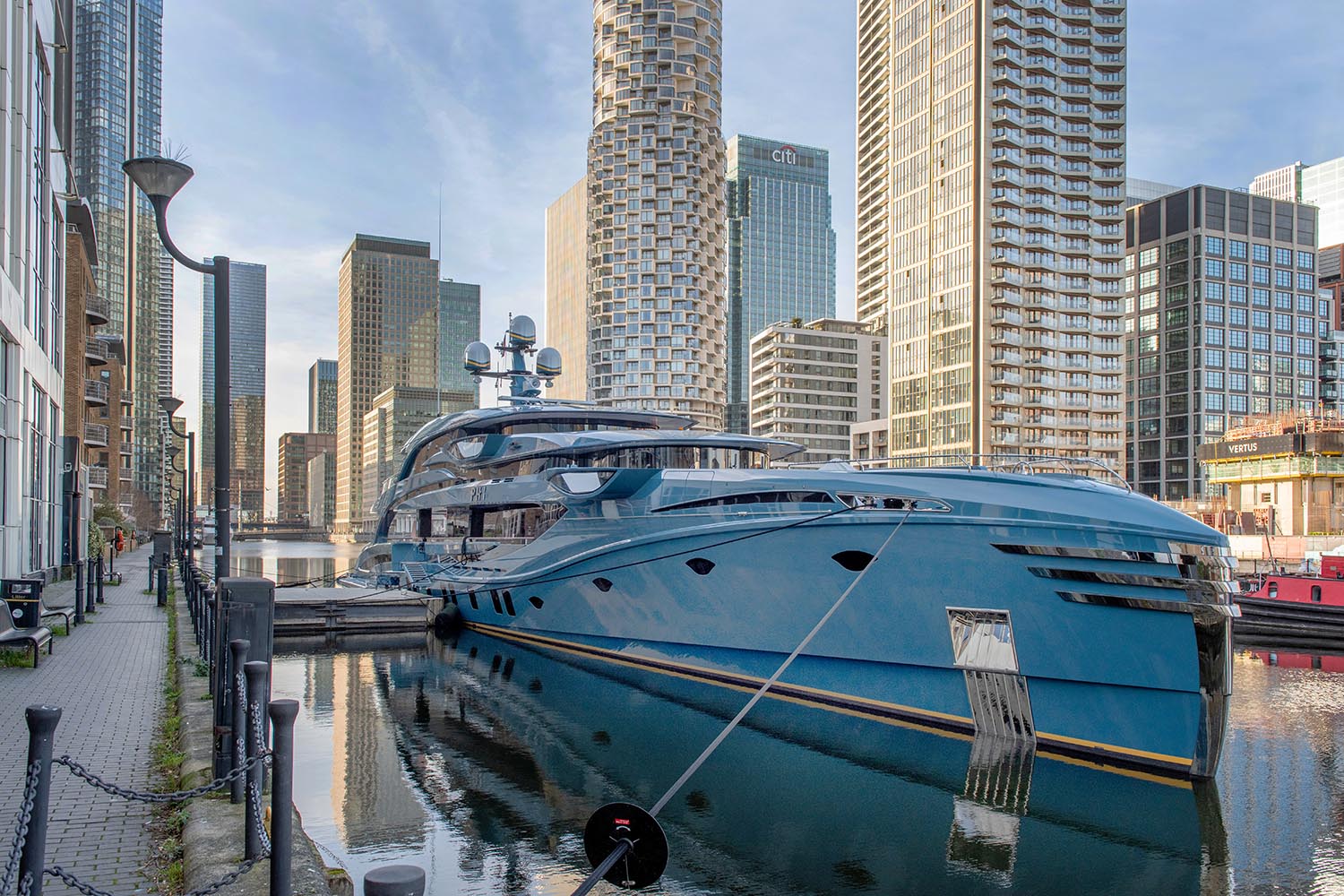
- A Belgian arms dealer sold 49 Leopard 1 tanks for use in Ukraine.
- The World Bank halted new lending to Uganda over its anti-LGBT+ law.
- A woman was left in critical condition after being bitten by a shark off New York’s Rockaway Beach.
Twenty-five arms brokers, drone makers, chip shippers and missile experts have joined a long list of British firms and individuals sanctioned for servicing the Russian war machine.
So what? These sanctions will “close the net” on Putin’s military supply chains, says Britain’s foreign secretary. Except they won’t. There will be new asset freezes and export controls, but yesterday’s announcement can’t disguise a few uncomfortable realities.
- These sanctions are overdue.
- Britain sanctions in general on pro-Kremlin warmongers (and emigré oligarchs) are inconsistently enforced at best and undermined by much of the work of the body that administers them – a secretive Treasury unit called the Office for Financial Sanctions Implementation (OFSI).
- The result is a perception that the city nicknamed Londongrad before Russia’s invasion has become a soft touch for sanctions dodgers as the war grinds on.
Overdue. 19 of the 25 newly sanctioned entities and individuals – based in Turkey, Belarus, Slovakia, Iran and Switzerland – were already sanctioned months or even years ago by the US, Tortoise has found. Most of them, including seven directors of an Iranian firm allegedly supplying drones to Russia, were added to the US sanctions list earlier this year. But two Belarusian defence contractors first sanctioned by the UK yesterday were sanctioned by America in 2021 and two more Iranian companies – both linked to the Revolutionary Guards Corps – have been on the US list since 2017.
Undermined. OFSI doesn’t decide whom to sanction (that is up to the Foreign, Commonwealth and Development Office). But it does have authority to freeze UK assets and accounts – and it operates an expanding system of exemptions known as licences to unfreeze funds for living and other expenses, reportedly extending in some cases to chauffeurs, butlers, school fees and six-figure legal bills.
“The problem is these licences aren’t public so we don’t know the scale of these exceptions,” says one leading campaigner. “We have a lot of concern that these are very generous allowances that undermine the whole purpose of sanctions. They are meant to be disruptive.”
Bill Browder, the US-born financier behind the Magnitsky Acts, told the NYT last month the UK government was “giving oligarchs its full support to get around its own sanctions” (more below).
Enforcement. Britain can’t enforce its sanctions on third parties with no presence in or business with the UK, so the new names on the list won’t feel much unless they have British trading partners. The National Crime Agency (NCA) is tasked with investigating alleged sanctions violations within the UK, but is fighting a rearguard action against the London-based oligarch Mikhail Fridman after admitting a raid by more than 50 of its officers on his Highgate mansion last December was unlawful.
On paper, British efforts to make sanctions bite are ramping up. Since Russia’s invasion…
- The NCA’s Combat Kleptocracy Cell has been given extra funds and staff to go after sanctions dodgers, though sources say it’s “coy” about the true scale of its operations.
- Total Russia-linked funds frozen under the sanctions regime have risen from £44.5 million to £18.4 billion.
- The number of “designated” individuals on the sanctions list has risen to 1,600.
- The number of OFSI staff implementing those sanctions – and handling requests for exemption licences – has risen from 45 to around 140.
In practice the licensing regime means a significant inconvenience for sanctioned Russians in the UK, but nothing that can’t be handled with the help of perspicacious lawyers. As the Guardian reported at the weekend, Eugene Shvidler, an associate of Roman Abramovich, has had to let go the entire crew of his 113-metre superyacht while it languishes under sanctions in Puerto Rico. But…
- Fridman obtained OFSI licenses last year to support a retinue of 19 London-based staff including chefs and housekeepers, plus £7,000 a month for his immediate family’s needs.
- His fellow billionaire Pyotr Aven has been allowed to access £60,000 a month for living expenses.
- And Yevgeny Prigozhin, head of the Wagner private army, has been allowed to pay for London lawyers to enable him to sue Bellingcat for libel.
None of these details were obtained directly from the OFSI. Most were obtained by Stephen Kinnock MP under parliamentary privilege and given to the Guardian. Campaigners say the US is “miles ahead” of the UK in sanctions enforcement, and are calling for a full review of enforcement powers available under the Proceeds of Crime Act.
Dr Helen Taylor of Spotlight on Corruption says the UK was quick to flex its muscles after the invasion but the true test of its resolve lies in its response when rules are broken: “Without criminal prosecutions or robust monetary penalties for sanctions breaches in public sight and with a complete lack of transparency about the Combatting Kleptocracy Cell’s capacity, there’s a real risk that the UK’s strong rules are being undermined by weak under-resourced enforcement.”
The OFSI was approached for comment.
Photograph Getty Images












